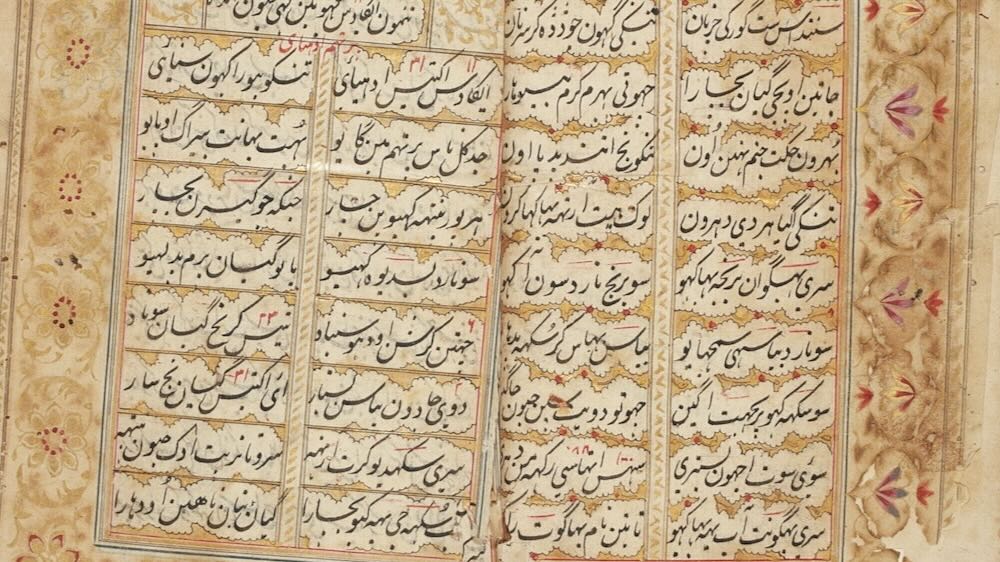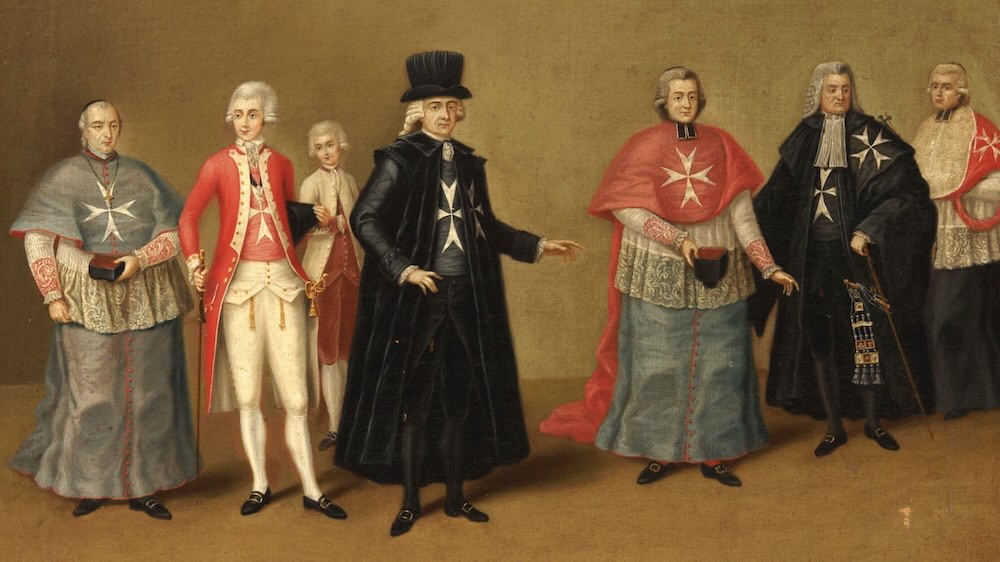Postscript — For Loving You Too Much
Postscript — For Loving You Too Much
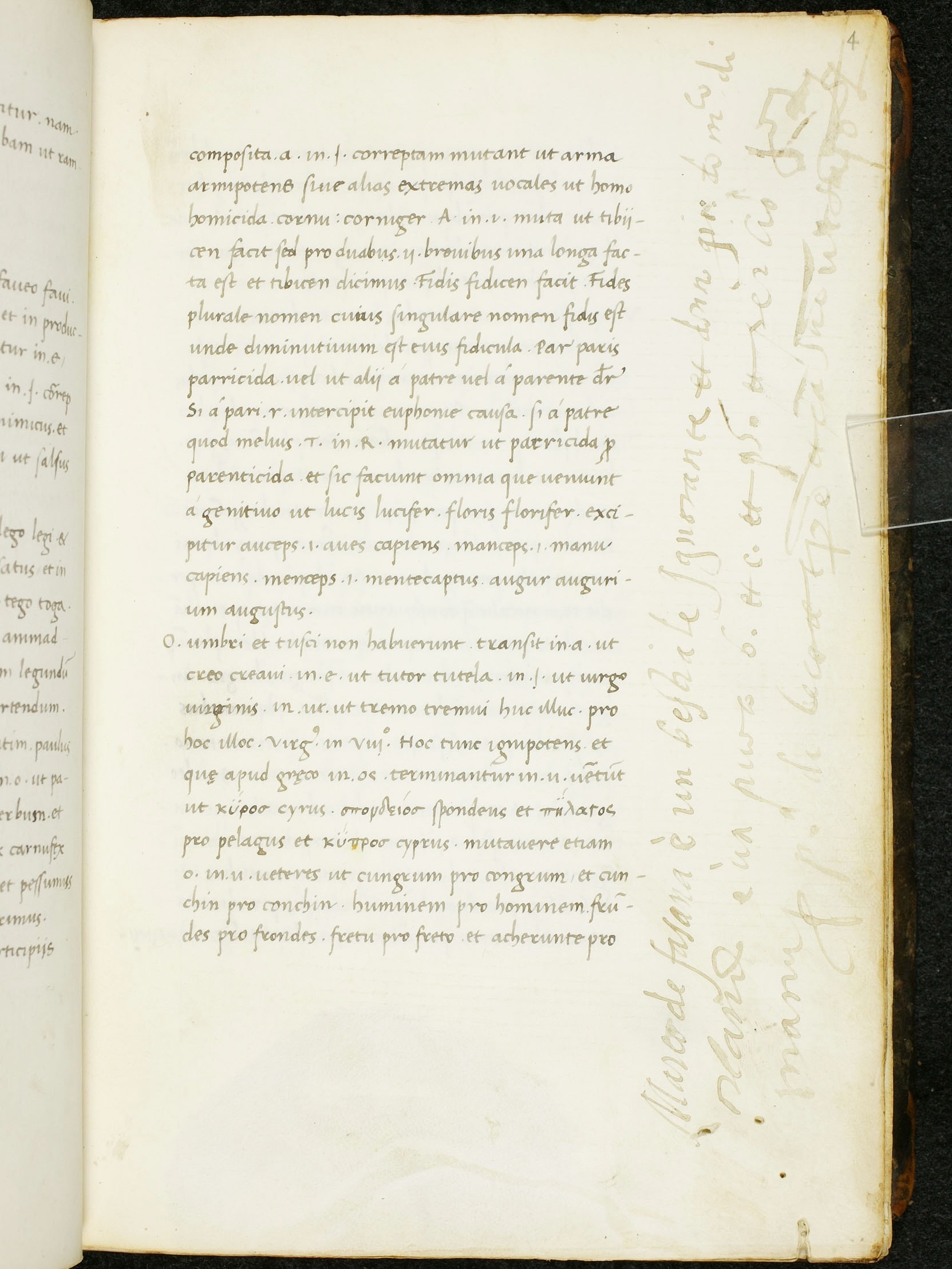
One of the most common uses of manuscripts over the centuries is to train children in reading and writing. Sometimes, however, the children’s writing is not quite what the teacher might have wanted.
Such is the case with a 15th-century Latin grammar manuscript in the collection of Saint John’s University in Collegeville, Minnesota, viewable in HMML Reading Room. The book, by an unknown author, contains adaptations or excerpts from the Institutiones grammaticae of Priscian (active circa 500 CE), one of the most influential grammarians in pre-Modern Europe. Priscian’s text is not copied verbatim; instead, it is reworked into notes or lessons for student use.
Written in a very neat, cursive hand, the book provides an overview of parts of speech, noun declensions, definitions of grammatical terms, and other elements in the art of writing. Guide words in the manuscript’s margins identify important terms and names of cited authors and poets. All is written in Humanist script, developed by Petrarch and other humanists in the 14th and 15th centuries as an attempt to copy ancient Roman formal scripts (Humanist minuscule and cursive influenced the so-called Roman typefaces used for printing in most Western European languages from the 16th century to today).
In addition to the author’s planned marginal notes, a large amount of marginalia was added later in Latin and Italian. These notes are written in a very informal way—likely “scribbles” left by students who used the book at some point in the past five centuries. Such marginalia appear throughout the book, largely bearing the names of Marco di Fasana and Gioanne Giacobis Fasana (the latter perhaps a Latinized spelling of Giovanni Giacopo). These scribbles reach their zenith on the book’s final leaves.
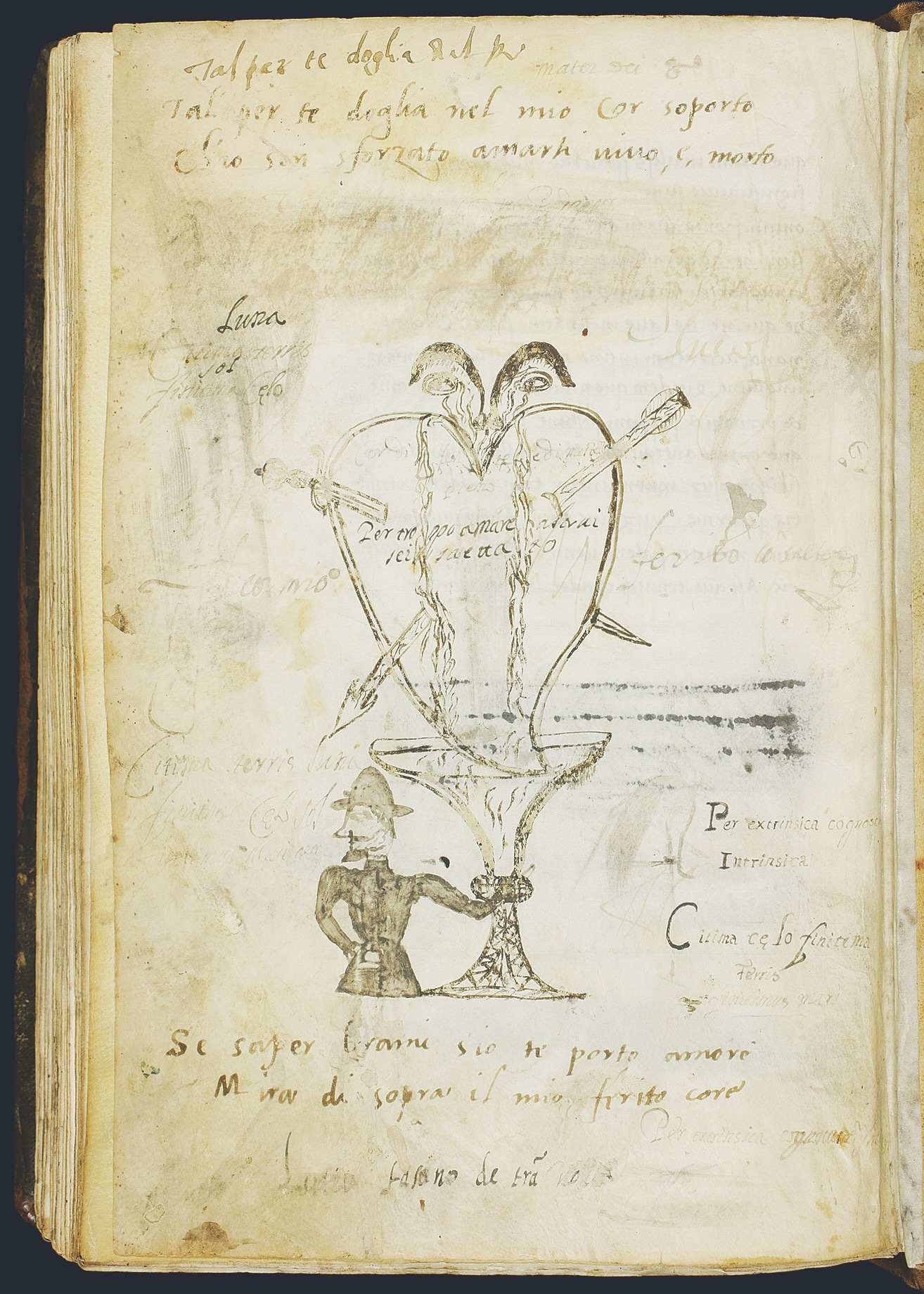
The penultimate leaf contains a variety of pen trials, ruminations, and an elaborate drawing of a man holding an oversized wine goblet in which a large heart with eyes is weeping, pierced with an arrow and a sword. Written on the heart is a phrase in Italian, “Per troppo amare soferai [?] sei saettato” (For too much love you will suffer [?] / you are pierced with arrows). At the top of the leaf, after a failed first writing attempt, comes a couplet, also in Italian:
“Tal per te doglia nel mio cor soporto
ch’io son sforzato amarti vivo, e, morto.”(For you such anguish I bear in my heart
that I am forced to love you alive, and, dead.)
Other scribbles abound on these leaves, such as “mater dei” (Mother of God) and “Per extrinsica cognoscuntur intrinsica” (Internal things are known through the external things).
Marco and Giovanni Giacopo appear to be two boys from the di Fasana family who were learning Latin, perhaps in the 15th or 16th centuries. That a certain rivalry may have existed emerges from the most memorable of the marginalia that populate the book: “Marco di Fasana è un bestiale ignorante…” (is a beastly ignoramus).
The scribbles of youth, indeed.
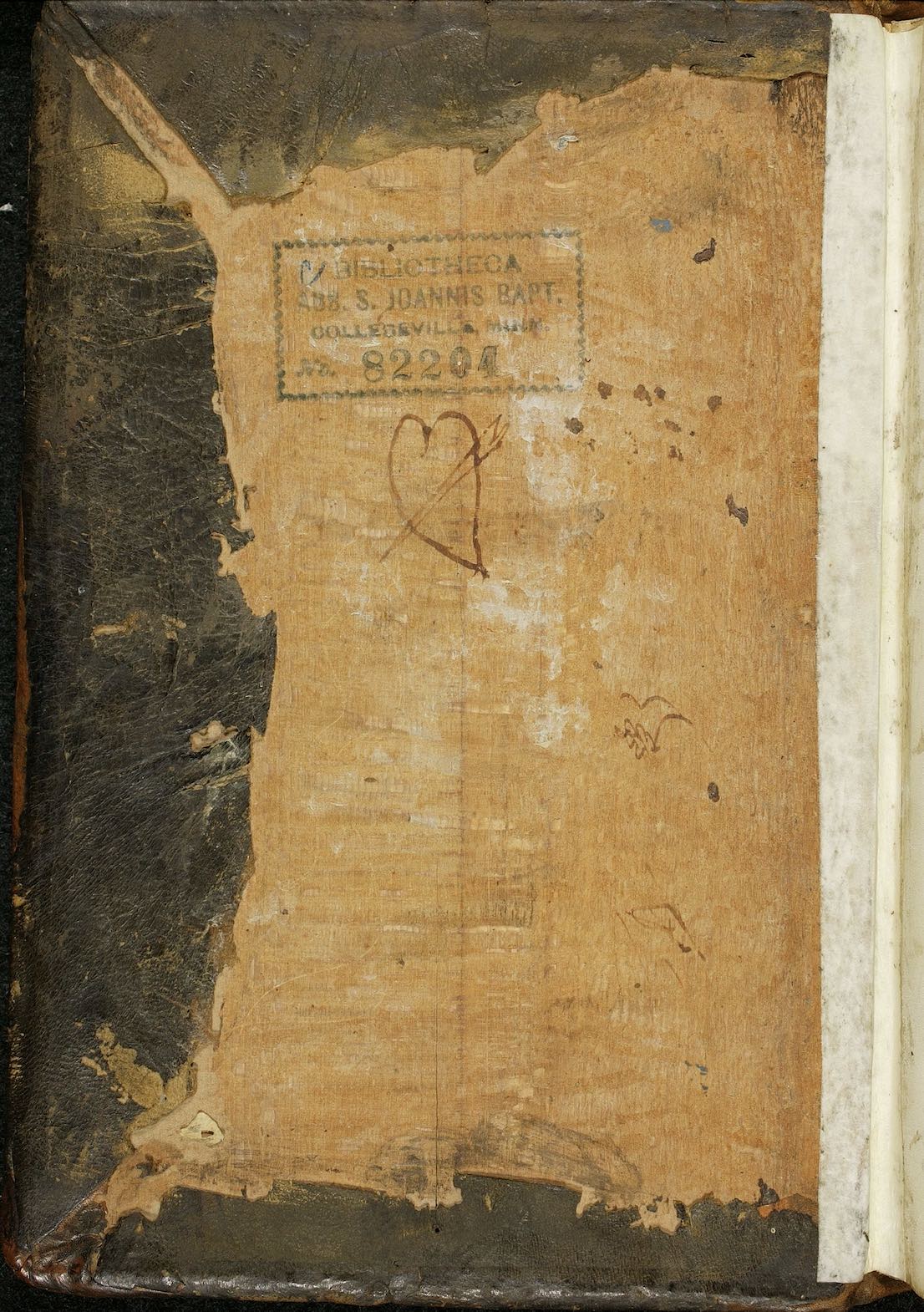
With gratitude to Professor Christopher Kleinhenz for help transcribing and translating the quoted texts.

